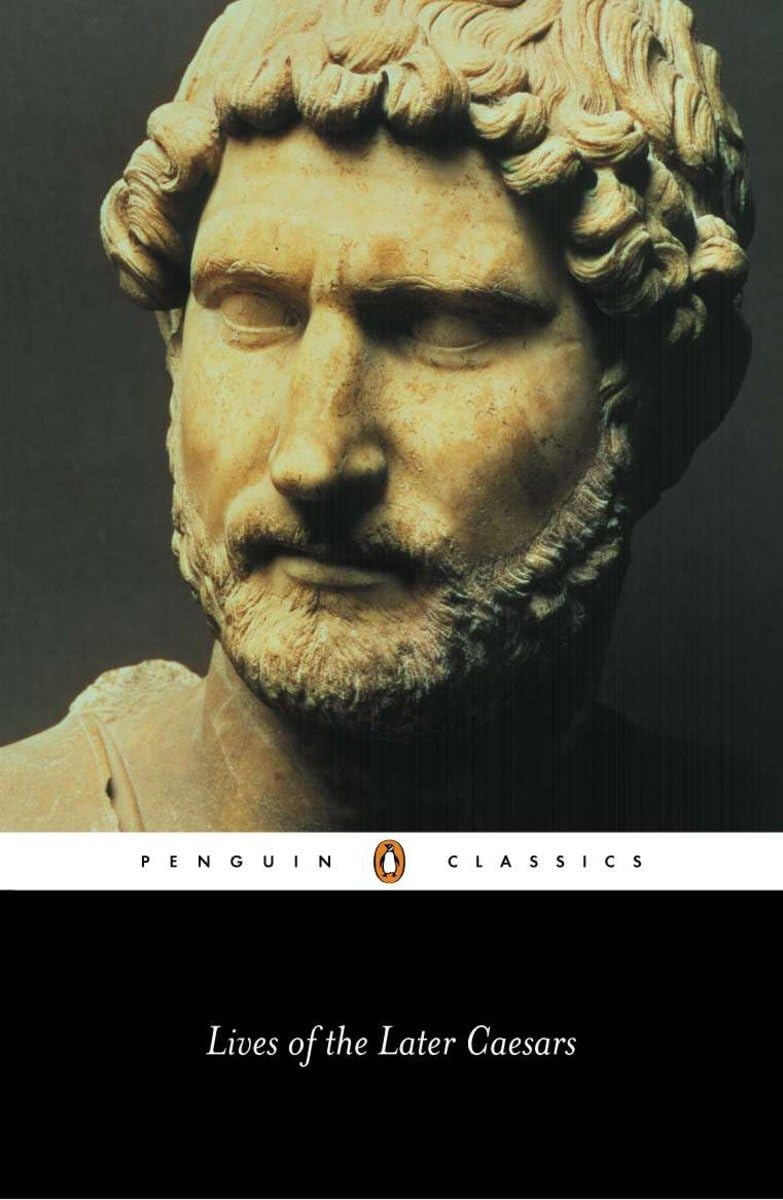What do you think?
Rate this book


336 pages, Paperback
First published January 1, 385
Cordus, who recounts such things in his books, says that [Clodius Albinus] was a glutton, so much so indeed that he used to consume a greater quantity of fruit than human capacities permit. For he says that Albinus, when hungry, ate five hundred dried figs ..., a hundred Campanian peaches, ten Ostian melons, twenty pounds of Labican grapes, a hundred fig-peckers and four hundred oysters.Now, that's quite an appetite! Guaranteed to kill any human long before they got to the thirtieth fig-pecker, whatever that is!